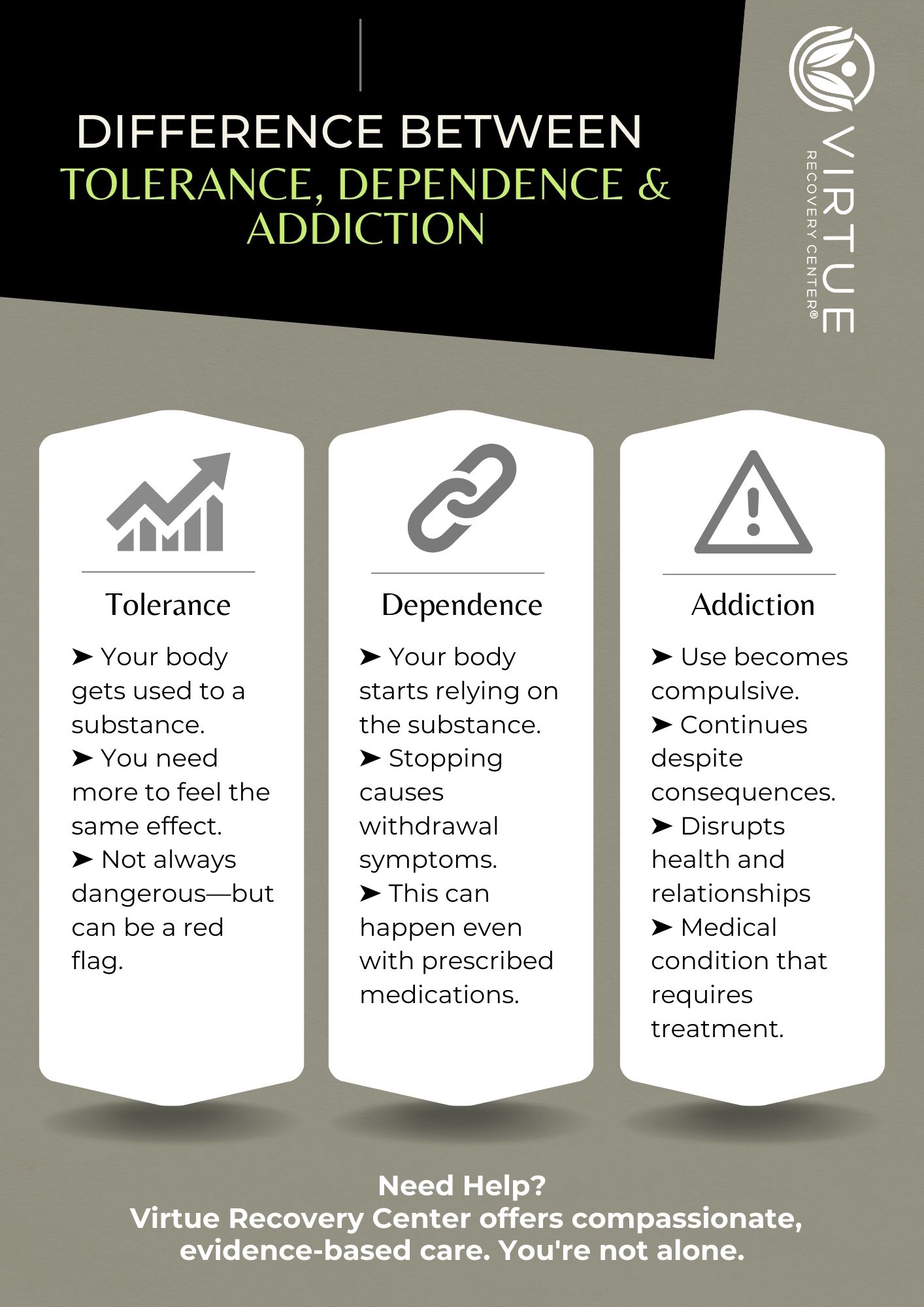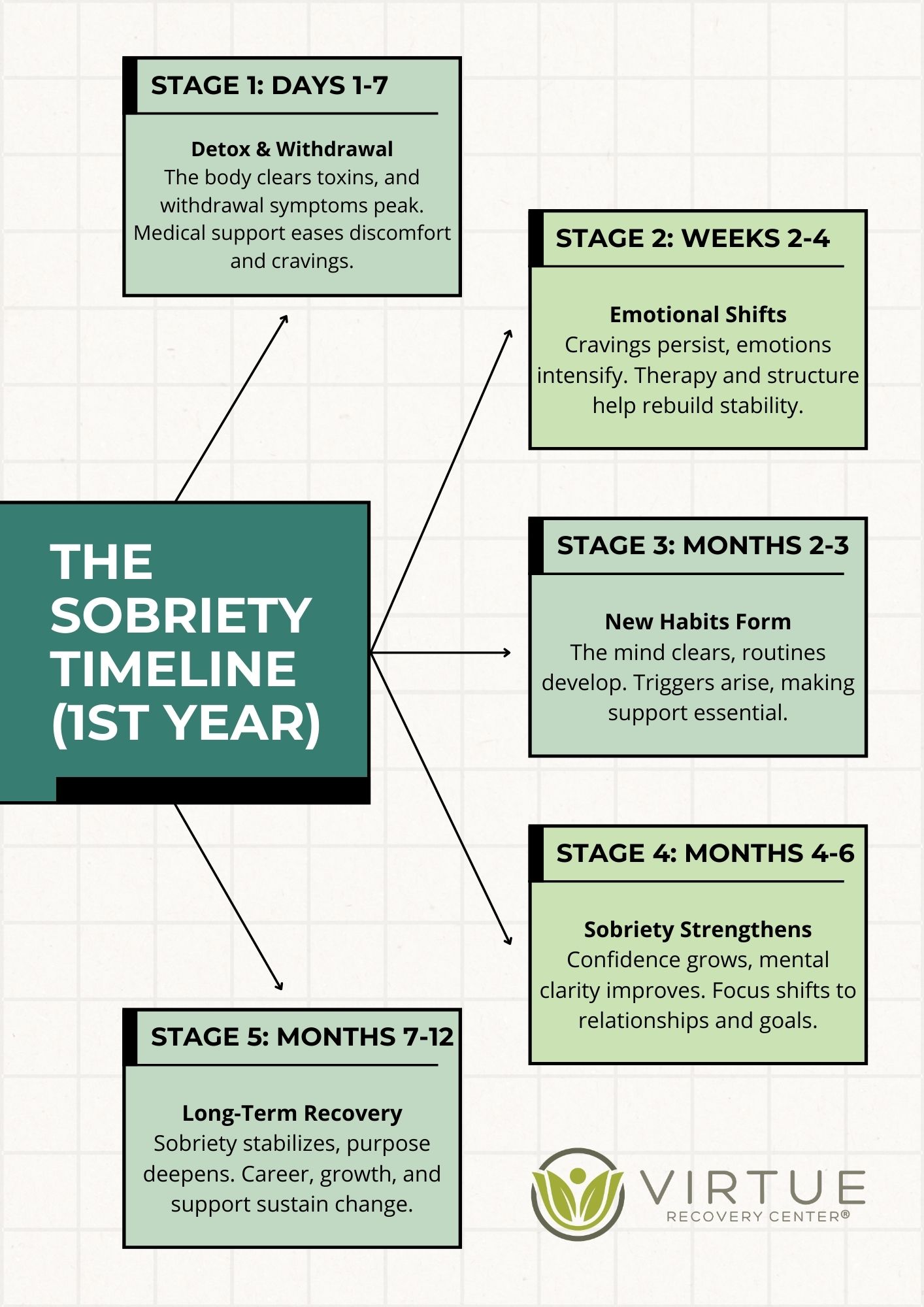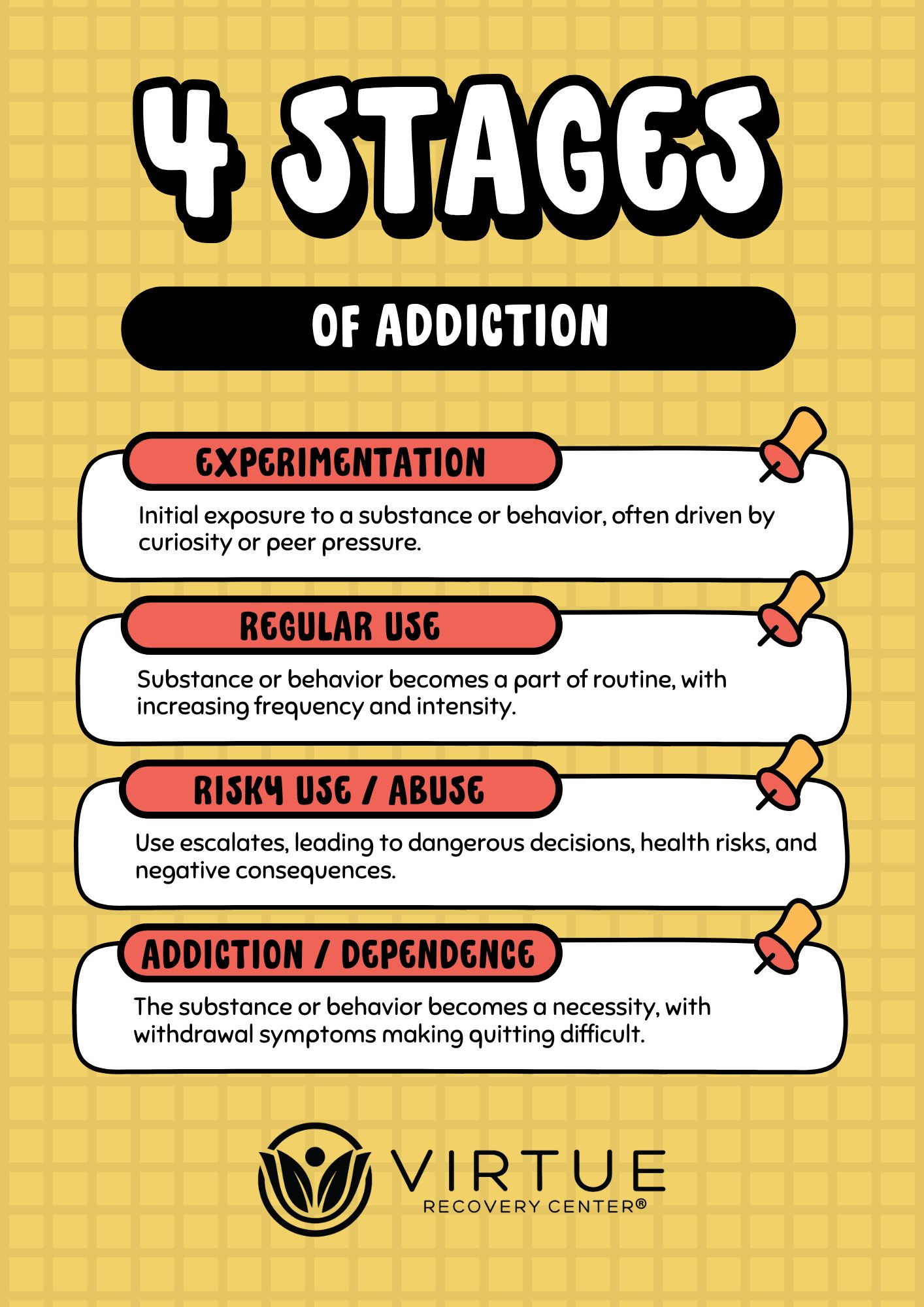Fentanyl Addiction Treatment at Virtue Recovery Las Vegas
 If you’re struggling with fentanyl addiction, finding the proper treatment is essential for a successful recovery. Virtue Recovery Las Vegas can help you regain control of your life with our comprehensive substance abuse treatment program specializing in fentanyl addiction services. To learn more, contact us today at 866.520.2861, or reach out online to speak with a caring and compassionate professional about a substance abuse treatment program in Las Vegas.
If you’re struggling with fentanyl addiction, finding the proper treatment is essential for a successful recovery. Virtue Recovery Las Vegas can help you regain control of your life with our comprehensive substance abuse treatment program specializing in fentanyl addiction services. To learn more, contact us today at 866.520.2861, or reach out online to speak with a caring and compassionate professional about a substance abuse treatment program in Las Vegas.
What is Fentanyl Addiction & Abuse?
Fentanyl is a synthetic opioid that is 50 to 100 times more potent than morphine. Originally developed for medical use to manage severe pain, such as in cancer patients or after surgery, fentanyl has also become a major driver of the opioid crisis. While it is highly effective as a pain reliever, its potency makes it extremely dangerous when misused.
Fentanyl addiction occurs when individuals develop a dependency on the drug, either through prescription misuse or illicit forms like powders, counterfeit pills, or laced substances. It produces an intense sense of euphoria by binding to the brain’s opioid receptors, but even small amounts can lead to overdose.
Abuse of fentanyl often begins innocently, such as using a prescription beyond its intended duration or taking higher doses than prescribed. In many cases, individuals unknowingly consume fentanyl in illicit drugs, significantly increasing the risk of overdose and dependency. Fentanyl’s fast-acting effects and extreme potency make it one of the most addictive and dangerous substances in existence.
How Does Fentanyl Addiction Develop?
Fentanyl addiction develops quickly due to the drug’s powerful effects on the brain’s reward system. When fentanyl enters the body, it binds to opioid receptors, flooding the brain with dopamine, a neurotransmitter responsible for feelings of pleasure. This intense rush can create a cycle of craving and compulsive use.
Over time, the brain becomes less capable of producing dopamine naturally, leading to a condition known as tolerance. As tolerance increases, individuals need higher doses to achieve the same euphoric effects. This escalation often results in physical dependence, where the body requires fentanyl to function normally.
Psychological factors also play a significant role. Many individuals turn to fentanyl to cope with emotional pain, stress, or trauma, creating a dual dependency that is both physical and mental. The rapid onset of withdrawal symptoms, such as severe cravings, anxiety, and flu-like symptoms, further traps individuals in the cycle of addiction, making it incredibly challenging to quit without professional help.
What Are The Dangers of Fentanyl Abuse?
Fentanyl abuse poses life-threatening risks due to its extreme potency and widespread presence in illicit drugs. Physically, even a small amount of fentanyl can suppress the respiratory system, leading to slowed or stopped breathing. This is why fentanyl is a leading cause of overdose deaths worldwide.
One of the most alarming dangers of fentanyl abuse is accidental overdose. Many people are unaware that the drugs they’re using, such as heroin or counterfeit pills, are laced with fentanyl. Because of its potency, just 2 milligrams—equivalent to a few grains of salt—can be fatal.
Chronic fentanyl abuse also takes a severe toll on mental health, often leading to depression, anxiety, and cognitive impairments. Social consequences include isolation, damaged relationships, and financial instability. The combination of these physical, emotional, and social impacts underscores the urgency of seeking treatment for fentanyl addiction.
Our Fentanyl Abuse Treatment Program
Virtue Recovery Las Vegas provides fentanyl addiction services to support your journey toward recovery. Our services for fentanyl addiction treatment include the following:
- Counseling — We offer both individual and group counseling services. Our licensed therapists and counselors conduct personalized therapy sessions to tackle the root causes of addiction and help clients develop healthy coping strategies.
- Medication-assisted treatment (MAT) — We use medications based on evidence to assist in managing withdrawal symptoms and reducing cravings.
- Relapse prevention planning or aftercare planning — We collaborate with you to develop a thorough plan that pinpoints potential triggers and establishes tactics for avoiding relapse.
Our rehabilitation program in Las Vegas is accredited by the Joint Commission, just like our inpatient rehabilitation centers in Chandler, Arizona, and Astoria, Oregon. You can apply for major PPO insurance plans and assistance from the U.S. Department of Veterans Affairs (VA) to finance treatment expenses.
What to Expect From Fentanyl Addiction Treatment
Fentanyl addiction treatment at Virtue Recovery Las Vegas is a comprehensive process designed to address both the physical and psychological aspects of dependency. The journey begins with medically supervised detox to safely manage withdrawal symptoms, which may include intense cravings, nausea, and muscle pain. Our medical team provides 24/7 care to ensure safety and comfort during this critical phase.
Once detox is complete, clients transition into a personalized treatment program tailored to their unique needs. Individual therapy, such as Cognitive Behavioral Therapy (CBT), helps clients uncover the root causes of their addiction and develop healthier coping strategies. Group therapy offers a supportive environment for sharing experiences and building connections with others in recovery.
We also incorporate holistic approaches like mindfulness, yoga, and fitness programs to promote overall well-being. Clients learn practical skills to manage stress, avoid triggers, and rebuild their lives. Our program focuses on creating a solid foundation for long-term recovery, including aftercare planning to provide continued support after treatment.
Why Get Fentanyl Addiction Treatment at Virtue Recovery Las Vegas?
Choosing Virtue Recovery Las Vegas for fentanyl addiction treatment means receiving expert care in a luxurious and supportive environment. Our facility combines evidence-based practices with holistic therapies to address every aspect of recovery, ensuring clients have the best chance of achieving lasting sobriety.
We offer private rooms, private bathrooms, chef-prepared meals, and state-of-the-art amenities, creating a comfortable setting where clients can focus entirely on their healing. Our low client-to-staff ratio ensures personalized attention, allowing us to tailor treatment plans to each individual’s needs.
What sets us apart is our dual-diagnosis care, which addresses co-occurring mental health conditions alongside addiction. Whether you’re dealing with anxiety, depression, or trauma, our team of licensed professionals provides comprehensive support to help you heal on every level.
Recovery doesn’t end when treatment is over. We prioritize aftercare by offering alumni programs, ongoing therapy, and relapse prevention strategies to help clients maintain their progress. At Virtue Recovery Las Vegas, we’re not just helping you overcome addiction—we’re helping you rebuild your life.
If you or a loved one is struggling with fentanyl addiction, don’t wait. Contact Virtue Recovery Las Vegas today and take the first step toward a healthier, brighter future.
Find a Fentanyl Addiction Rehab Program at Virtue Recovery Las Vegas
To transform your life, reach out to Virtue Recovery Las Vegas now at 866.520.2861. Our fentanyl addiction rehab in Las Vegas can help you take the first step toward a happier, healthier life.
FAQs About Fentanyl Addiction Treatment at Virtue Recovery Las Vegas
Virtue Recovery Las Vegas combines evidence-based therapies, holistic approaches, and luxurious amenities like private rooms and chef-prepared meals to provide a comprehensive recovery experience.
Yes, we offer medically supervised detox programs to help clients safely and comfortably manage withdrawal symptoms.
Yes, clients are allowed to vape or smoke in designated areas to help manage stress during recovery.
We teach practical skills like stress management, trigger identification, and coping mechanisms to help prevent relapse.
Private rooms provide a personalized, stress-free space for reflection, rest, and recovery, enhancing focus and comfort throughout treatment.
Yes, we provide an inclusive and welcoming environment with tailored care plans to meet the unique needs of LGBTQ+ individuals.
After the 72-hour blackout period, clients can access their phones during designated times to stay connected with loved ones.
We adhere to strict HIPAA regulations and maintain a highly confidential environment to protect all client information and treatment details.
Glossary of Terms for Fentanyl Addiction Treatment
Fentanyl
A powerful synthetic opioid that is 50 to 100 times stronger than morphine. Fentanyl is prescribed for severe pain management but is often misused, leading to addiction.
Opioid Use Disorder (OUD)
A medical condition characterized by the compulsive use of opioids like fentanyl despite harmful consequences on health and well-being.
Detoxification (Detox)
The process of safely removing fentanyl from the body under medical supervision to manage withdrawal symptoms and ensure safety.
Medication-Assisted Treatment (MAT)
The use of FDA-approved medications, such as buprenorphine or methadone, to reduce cravings and withdrawal symptoms during fentanyl addiction treatment.
Relapse Prevention
Strategies and tools are taught during treatment to help individuals recognize triggers, manage cravings, and maintain long-term sobriety.
Dual Diagnosis
A treatment approach that addresses both fentanyl addiction and co-occurring mental health disorders, such as depression or PTSD, simultaneously.
Trauma-Informed Care
A treatment model that recognizes the role of past trauma in addiction and creates a safe, supportive environment for recovery.
Withdrawal Symptoms
Physical and emotional symptoms experienced when stopping or reducing fentanyl use include muscle pain, nausea, insomnia, and intense cravings.
Cognitive Behavioral Therapy (CBT)
An evidence-based therapy that helps individuals identify and change harmful thought patterns and behaviors associated with fentanyl addiction.
Holistic Treatment
An approach that integrates therapies like yoga, mindfulness, and nutrition with clinical care to address physical, emotional, and mental well-being.
Individualized Treatment Plan
A customized recovery plan tailored to each client’s specific needs, challenges, and goals during fentanyl addiction treatment.
Aftercare
After completing a treatment program, ongoing support and resources, such as therapy, support groups, and relapse prevention planning, are provided.
Peer Support
Encouragement and shared experiences from others in recovery are often facilitated through group therapy or support groups.
Triggers
Environmental, emotional, or situational cues can lead to cravings or relapse if not effectively managed.
Partial Hospitalization Program (PHP)
An intensive treatment program where clients participate in structured therapy during the day but return home or to a sober living environment in the evening.
Family Therapy
Counseling sessions involve family members to repair relationships, improve communication, and create a strong recovery-support network.
Evidence-Based Treatment
Therapies and methods have been proven through scientific research to effectively treat fentanyl addiction, such as MAT and behavioral therapies.
Overdose Risk
The increased likelihood of respiratory failure and death from fentanyl use due to its extreme potency, often heightened when mixed with other substances.
Mindfulness-Based Stress Reduction (MBSR)
A therapeutic practice that incorporates mindfulness and meditation to help clients manage stress, reduce cravings, and improve emotional regulation.












